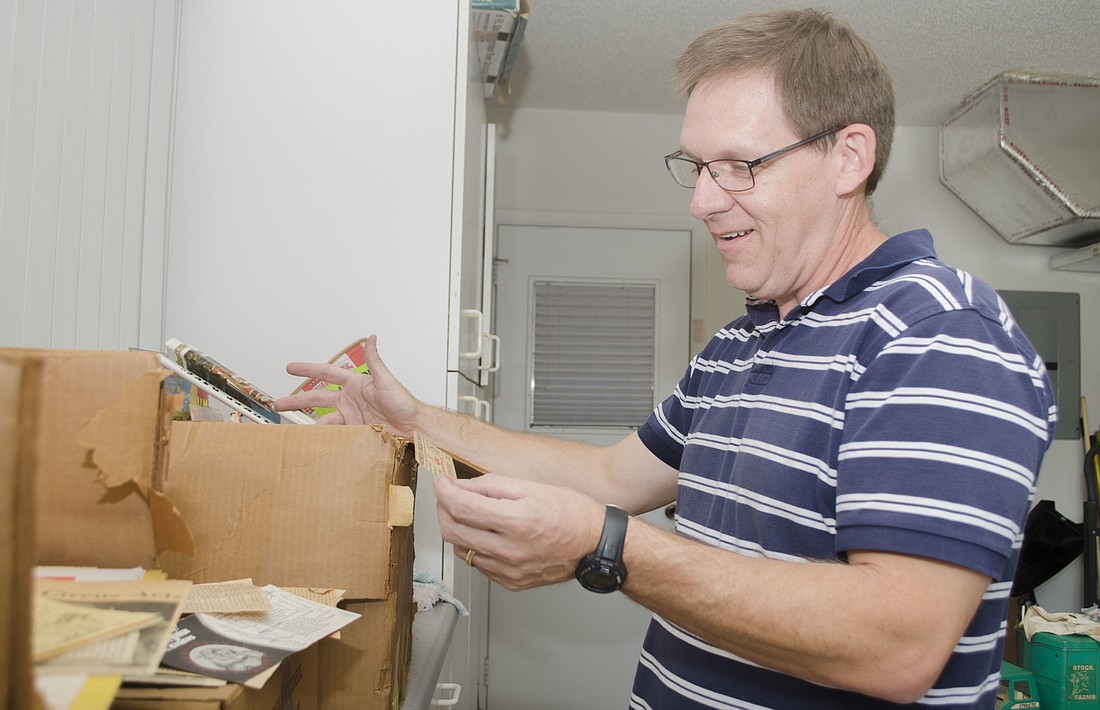- November 23, 2024
-
-
Loading

Loading

The small musical instrument sits in the corner of the room. It looks like a cross between a miniature red piano and a pipe organ with shiny, gold towers protruding from its lid. Most would recognize its sound before its facade.
Its chipper, high-pitched melodies often accompany carousels, but for circus fans, its name serves as a sort of lingual test.
“Circus fans say cal - EE - ope,” Terry Sanhauser said. Non-circus fans say ca - LIE - oh - pee. He’s hoping someone in the former group might want to take the cal - EE - ope off his hands, along with boxes and boxes of other circus memorabilia.
By the way, it’s spelled c-a-l-l-i-o-p-e.
It’s not that his love of the Greatest Show on Earth has waned. It hasn’t. His voice maintains the speed and cadence of someone who loves what he’s talking about. He lists dates, names and places without taking a breath.
“Before the internet, before television, before movies, it was the circus,” Sanhauser said. “If you wanted to see an elephant and you were living in Iowa, you went to the circus.”
A former Sarasota resident, Sanhauser attributes his passion to his father.
“When other people would be interested in football or baseball or sports, my dad would be interested in the circus. We would spend Sunday afternoons over at a place called the Circus Hall of Fame,” Sanhauser said. “That’s what I did … That was sort of who I am.”
His family moved to Sarasota in 1974. While Sanhauser participated in Sailor Circus for nine years, his father built up an impressive collection of circus memorabilia, including the restored calliope.
“My dad was not just a circus fan, he was a circus fanatic,” Sanhauser said. His dad died in 1988.
Circus programs, tickets, newspaper clippings, costumes and records all beckon back to a chapter of Sarasota’s history rapidly coming to a close.
But as his mother prepares to move out of the family home, Sanhauser is left looking for a new home for his father’s collection.
“It’s one thing to have a private collection, but it’s also good to be able to share it with people, because then they get to enjoy it,” Sanhauser said.
While some might not see the significance of programs and unused tickets, Sanhauser is hoping that Ringling Circus’ impending closure may contribute to the preservation of the memorabilia.
The way he sees it, the collection is a testament to American history.
“The Ringling brothers ... were an immigrant family,” he said. “Through literally hard work, sweat, sometimes a little trickery, they built their show from nothing into this incredible business empire. It really mirrors what was going on in America in the late 19th or 20th century.”
“It’s ordinary people doing the amazing, and I think there is something about that within us that we’re drawn to."
Sanhauser has mostly moved on from his circus days. He still incorporates the circus into his curriculum as a fourth-grade teacher in Dover, but he doesn’t spend his weekends perusing museums.
Yet, even as he prepares to let go of the treasures, his voice trails off when he considers what made the circus great.
“It’s ordinary people doing the amazing, and I think there is something about that within us that we’re drawn to. When someone walks across the high wire he does an incredible thing, but yet he is a regular person.”